Rarely have I gone into the ending of such a great series feeling such trepidation.
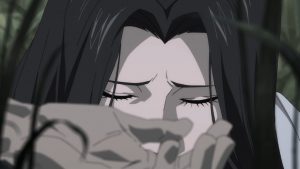 To begin with, I should say that I don’t look forward to finales of shows I really love. They’re sad affairs, even with happy endings and good execution, because you’d like to keep that series in your life and you’re losing it. But Dororo was special, because there was a sharp tingle of danger in the air as the calendar ticked towards this episode. Some of the editorial decisions in the second cour seemed pretty far off the mark, and there seemed to be a very real chance that MAPPA and Tezuka Productions, and Furuhashi and Kobayashi could screw this up really badly. And that, frankly, would really have sucked.
To begin with, I should say that I don’t look forward to finales of shows I really love. They’re sad affairs, even with happy endings and good execution, because you’d like to keep that series in your life and you’re losing it. But Dororo was special, because there was a sharp tingle of danger in the air as the calendar ticked towards this episode. Some of the editorial decisions in the second cour seemed pretty far off the mark, and there seemed to be a very real chance that MAPPA and Tezuka Productions, and Furuhashi and Kobayashi could screw this up really badly. And that, frankly, would really have sucked.
 Thankfully, that came nowhere close to happening. None of my worst fears were realized, and the ending we got was a lot more closely aligned with my viewpoint on the story that I believe the narrative suggested was likely to be the case. Whether that amounts to a misread of the buildup I don’t know, but judging by the consensus of opinion here and elsewhere if it was indeed a misread (or a misdirection) it was a pretty widespread (or successful) one. If the writing was fooling that many people, I’m not sure if it even matters whether it was on purpose or not.
Thankfully, that came nowhere close to happening. None of my worst fears were realized, and the ending we got was a lot more closely aligned with my viewpoint on the story that I believe the narrative suggested was likely to be the case. Whether that amounts to a misread of the buildup I don’t know, but judging by the consensus of opinion here and elsewhere if it was indeed a misread (or a misdirection) it was a pretty widespread (or successful) one. If the writing was fooling that many people, I’m not sure if it even matters whether it was on purpose or not.
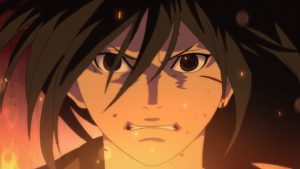 Well, I ain’t looking a gift horse in the mouth – we got an ending I mostly agreed with, and which was for the most part superbly executed. It certainly wasn’t a happy one in the main (I would describe the ending as hopeful rather than happy, and that befits a series that was basically a tragedy with a spine of hope running through it), but too much Karma has flowed under the bridge for there not to be a toll extracted here in the end. Of all the characters I would have bet on not to make it out of here alive, Nui would probably have been at the top of the list – and while it’s not a certainty, it seems very likely she did meet her end in the fiery ruins of her husband’s castle. But not before admitting (at last) that she’d made a terrible mistake, and not before her face was the first thing her first-born saw with his own eyes (which was beautiful but also kind of a bummer in a way, for obvious reasons).
Well, I ain’t looking a gift horse in the mouth – we got an ending I mostly agreed with, and which was for the most part superbly executed. It certainly wasn’t a happy one in the main (I would describe the ending as hopeful rather than happy, and that befits a series that was basically a tragedy with a spine of hope running through it), but too much Karma has flowed under the bridge for there not to be a toll extracted here in the end. Of all the characters I would have bet on not to make it out of here alive, Nui would probably have been at the top of the list – and while it’s not a certainty, it seems very likely she did meet her end in the fiery ruins of her husband’s castle. But not before admitting (at last) that she’d made a terrible mistake, and not before her face was the first thing her first-born saw with his own eyes (which was beautiful but also kind of a bummer in a way, for obvious reasons).
 Tahoumaru most likely (though again, not certainly) meeting his fate was almost as unsurprising. He sealed his when he decided to double-down on his father’s great sin by accepting demonic powers to try and complete Daigo’s contract. What’s interesting here is Hyakkimaru’s observation that Tahoumaru was missing something – around where his heart should be, it looks like. Did this happen as a result of that contract or was he like that all along? I suspect it’s the former, and that was part of the price the demon extracted for the loan of Hyakki’s eyes and arms.
Tahoumaru most likely (though again, not certainly) meeting his fate was almost as unsurprising. He sealed his when he decided to double-down on his father’s great sin by accepting demonic powers to try and complete Daigo’s contract. What’s interesting here is Hyakkimaru’s observation that Tahoumaru was missing something – around where his heart should be, it looks like. Did this happen as a result of that contract or was he like that all along? I suspect it’s the former, and that was part of the price the demon extracted for the loan of Hyakki’s eyes and arms.
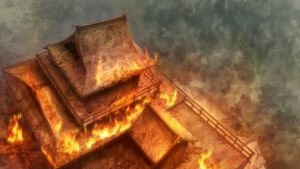 It was a sad end for Tahoumaru, really – I think he knew on some level that Daigo’s cause was craven and hollow, but once he’d made his decision that he had no choice but to support it he had to do so more and more brazenly and deny the pangs of his own conscience. And of course, it can’t be denied that his resentment over Hyakkimaru’s hold on Nui’s love was a major driving factor here too, which sounds petty but is ultimately about as elemental as it gets. At least his mother was with him in the end, if indeed that’s what it was.
It was a sad end for Tahoumaru, really – I think he knew on some level that Daigo’s cause was craven and hollow, but once he’d made his decision that he had no choice but to support it he had to do so more and more brazenly and deny the pangs of his own conscience. And of course, it can’t be denied that his resentment over Hyakkimaru’s hold on Nui’s love was a major driving factor here too, which sounds petty but is ultimately about as elemental as it gets. At least his mother was with him in the end, if indeed that’s what it was.
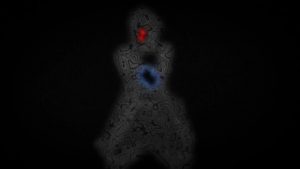 As for Hyakkimaru, I never bought into the notion that he had much to apologize for. Despite the constant harping about how he was on the verge of becoming a demon, he never chose to have demons as a part of him. In fact to me it was Tahoumaru who followed that path, and even literally chose to have demon parts in the end. Hyakkimaru didn’t choose any of this, and whatever he did he did to survive and to become human. I wasn’t surprised he spared Tahoumaru in the end, because he never had it in him to do otherwise. I do think it’s a valid question, though, whether Tahoumaru would have done the same had their fortunes in their duel been reversed.
As for Hyakkimaru, I never bought into the notion that he had much to apologize for. Despite the constant harping about how he was on the verge of becoming a demon, he never chose to have demons as a part of him. In fact to me it was Tahoumaru who followed that path, and even literally chose to have demon parts in the end. Hyakkimaru didn’t choose any of this, and whatever he did he did to survive and to become human. I wasn’t surprised he spared Tahoumaru in the end, because he never had it in him to do otherwise. I do think it’s a valid question, though, whether Tahoumaru would have done the same had their fortunes in their duel been reversed.
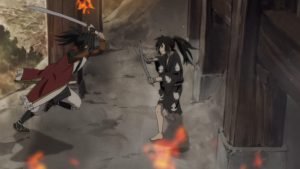 I think, in the end, Nui and Tahoumaru had to die (or at least appear to die) in order for Daigo to be sufficiently bereft and alone. I never felt Dororo judged Daigo as harshly as he deserved to be judged, but this was one of those elements of the finale which was surprisingly in-line with my thinking. In fact the scene where Hykkimaru encounters Daigo in the Hall of Hell was the best of the episode in my opinion, because not only did it reveal that Hyakki’s humanity extended even towards the man he would have been perfectly justified in wanting to kill, it also had the depth of his own foolishness thrust down Daigo’s miserable craw. The joke was on him, really – he had an exceptional son who could have grown up to be a great leader and revitalized his domain, and he sold him to demons to try and do it the easy way. As much as I wanted to see Daigo die, poetically speaking I think he had to live on in full knowledge of all he’d lost, and why.
I think, in the end, Nui and Tahoumaru had to die (or at least appear to die) in order for Daigo to be sufficiently bereft and alone. I never felt Dororo judged Daigo as harshly as he deserved to be judged, but this was one of those elements of the finale which was surprisingly in-line with my thinking. In fact the scene where Hykkimaru encounters Daigo in the Hall of Hell was the best of the episode in my opinion, because not only did it reveal that Hyakki’s humanity extended even towards the man he would have been perfectly justified in wanting to kill, it also had the depth of his own foolishness thrust down Daigo’s miserable craw. The joke was on him, really – he had an exceptional son who could have grown up to be a great leader and revitalized his domain, and he sold him to demons to try and do it the easy way. As much as I wanted to see Daigo die, poetically speaking I think he had to live on in full knowledge of all he’d lost, and why.
 As for Jukai, his death was harder to take, given how much he still had to contribute to the world. But I think Jukai probably felt he should have died years earlier as a just punishment for the crime he committed. He helped a lot of people, but in truth he lived on for Hyakkimaru. And once he’d discharged his ultimate responsibility to Hyakkimaru – which in the end was to acknowledge his humanity and give him the final push he needed to live on – Jukai probably felt he’d fulfilled his purpose in life.
As for Jukai, his death was harder to take, given how much he still had to contribute to the world. But I think Jukai probably felt he should have died years earlier as a just punishment for the crime he committed. He helped a lot of people, but in truth he lived on for Hyakkimaru. And once he’d discharged his ultimate responsibility to Hyakkimaru – which in the end was to acknowledge his humanity and give him the final push he needed to live on – Jukai probably felt he’d fulfilled his purpose in life.
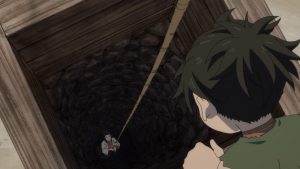 I felt it very likely that Hyakkiamaru and Dororo would separate in the end, at least for a while (though not before he told her she was pretty). It was indeed Biwamaru’s path (what an interesting revelation, that he was once a samurai) that Hyakki chose, and to walk that path Hyakkimaru had to do so alone for a while, to come to terms with what he’d seen and with who and what he was. And Dororo’s path – to use her fortune in a way that ultimately would have made her parents very happy – really didn’t hold a place for Hyakkimaru. The story makes it very clear that those paths will one day merge, even as it leaves it to our imagination what shared course they might follow afterwards.
I felt it very likely that Hyakkiamaru and Dororo would separate in the end, at least for a while (though not before he told her she was pretty). It was indeed Biwamaru’s path (what an interesting revelation, that he was once a samurai) that Hyakki chose, and to walk that path Hyakkimaru had to do so alone for a while, to come to terms with what he’d seen and with who and what he was. And Dororo’s path – to use her fortune in a way that ultimately would have made her parents very happy – really didn’t hold a place for Hyakkimaru. The story makes it very clear that those paths will one day merge, even as it leaves it to our imagination what shared course they might follow afterwards.
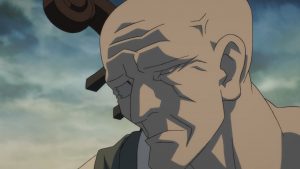 All in all, that was a very satisfying conclusion and a far better one than I feared might be in the offing. Dororo has seen a great many iterations, each one of them taking a different view on how the story should conclude – a function, I think, of Tezuka proving so little clarity on the issue himself. As much as I struggled with the anime’s assessment of Hyakkimaru – perhaps reflective of an especially Japanese interpretation of the character and his arc – in the final analysis it did both he and the story justice. It was really the love of two people – Jukai and Dororo – that redeemed Hyakkimaru in the end. Jukai was the reason he was alive and understood the nature of love, and even as he was collecting the physical parts that would make him human, Dororo was teaching him how to be human. Without that, the limbs and organs would have been a hollow shell.
All in all, that was a very satisfying conclusion and a far better one than I feared might be in the offing. Dororo has seen a great many iterations, each one of them taking a different view on how the story should conclude – a function, I think, of Tezuka proving so little clarity on the issue himself. As much as I struggled with the anime’s assessment of Hyakkimaru – perhaps reflective of an especially Japanese interpretation of the character and his arc – in the final analysis it did both he and the story justice. It was really the love of two people – Jukai and Dororo – that redeemed Hyakkimaru in the end. Jukai was the reason he was alive and understood the nature of love, and even as he was collecting the physical parts that would make him human, Dororo was teaching him how to be human. Without that, the limbs and organs would have been a hollow shell.
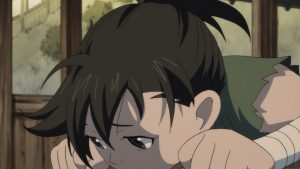 There are very, very few (in fact, I can’t think of a single other) anime that actually remind me of Seirei no Moribito – that’s how unique that series is in the annals of anime history. But Dororo really did, especially in the early episodes – this is a story with a depth and poetry that’s extremely rare in anime or any other medium. In the end of course it isn’t quite the transcendent masterpiece Moribito is, but Dororo still would up being a great series even if it did seem to lose the plot at times in the second cour. Simple and profound storytelling, a superb cast, and a total disregard for anime tropes – Dororo is a unicorn in 2019, a series the likes of which we see more and more rarely (and they were never common). A great story told for its own sake, and that’s something I will always, always be grateful for.
There are very, very few (in fact, I can’t think of a single other) anime that actually remind me of Seirei no Moribito – that’s how unique that series is in the annals of anime history. But Dororo really did, especially in the early episodes – this is a story with a depth and poetry that’s extremely rare in anime or any other medium. In the end of course it isn’t quite the transcendent masterpiece Moribito is, but Dororo still would up being a great series even if it did seem to lose the plot at times in the second cour. Simple and profound storytelling, a superb cast, and a total disregard for anime tropes – Dororo is a unicorn in 2019, a series the likes of which we see more and more rarely (and they were never common). A great story told for its own sake, and that’s something I will always, always be grateful for.


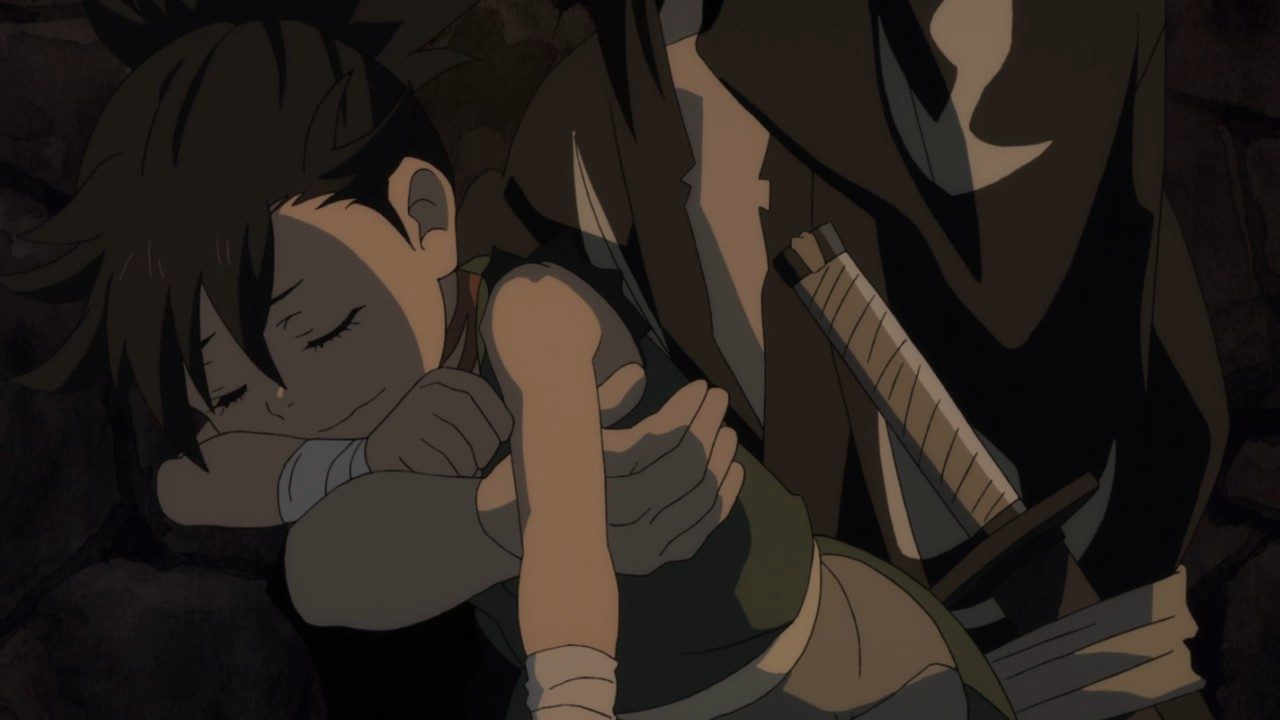
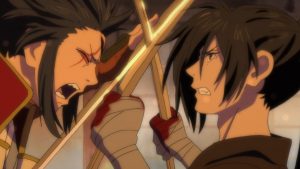




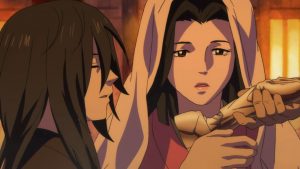
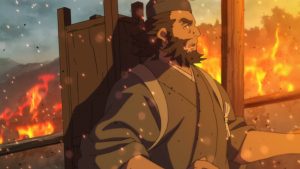
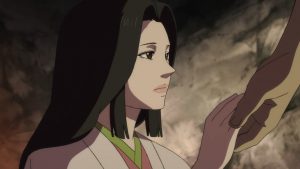
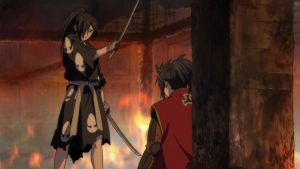
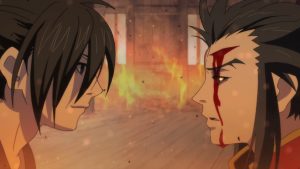
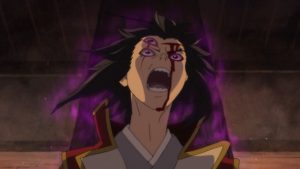

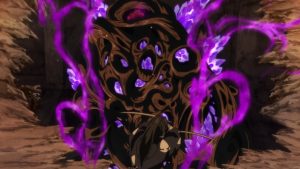
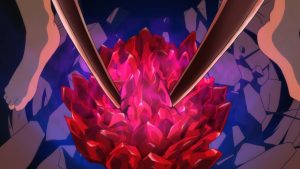
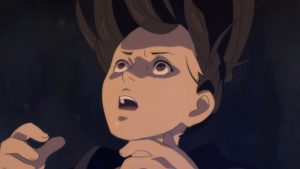
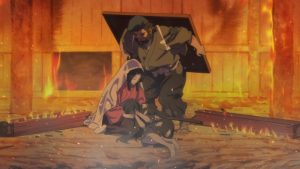
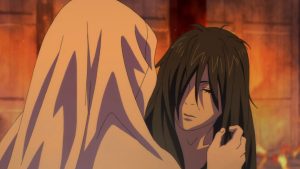
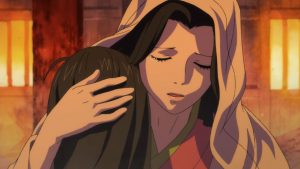
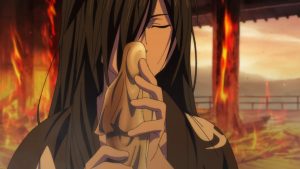
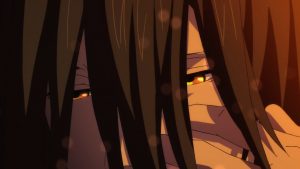
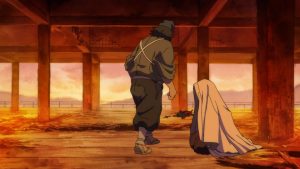

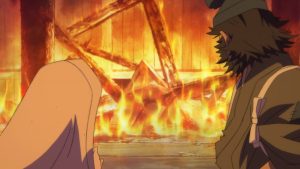

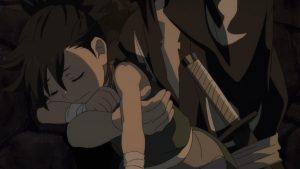
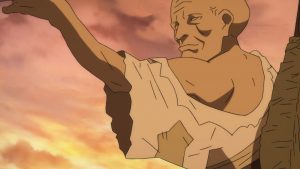


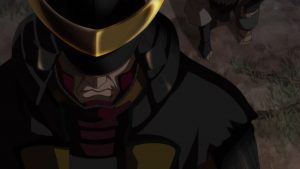
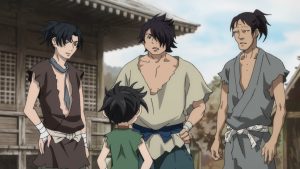
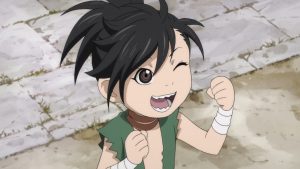

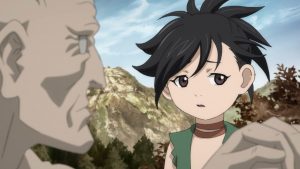
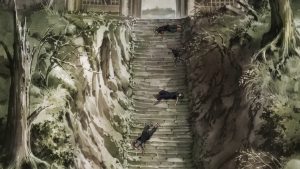
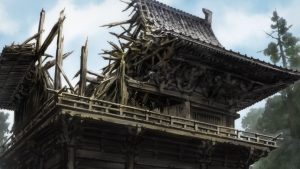
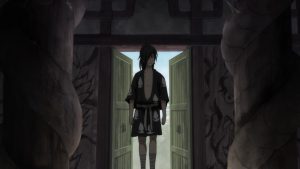
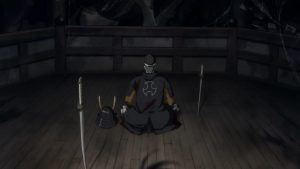


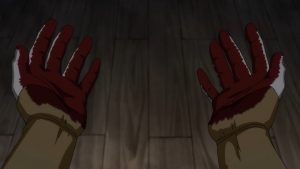
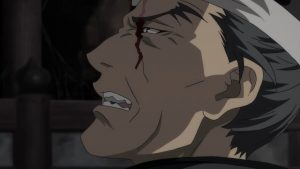
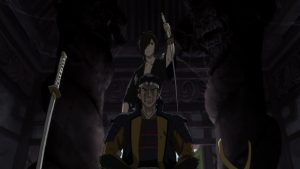

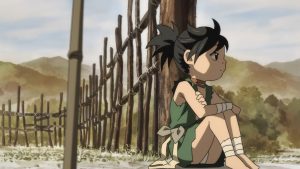
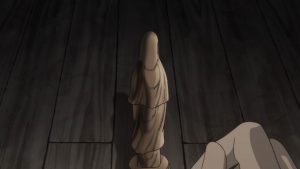


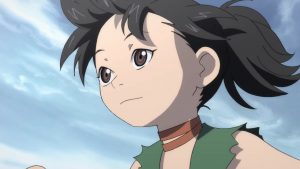
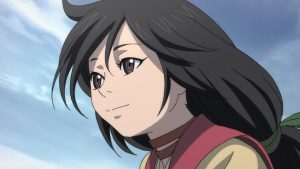
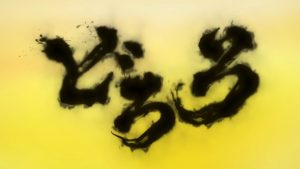

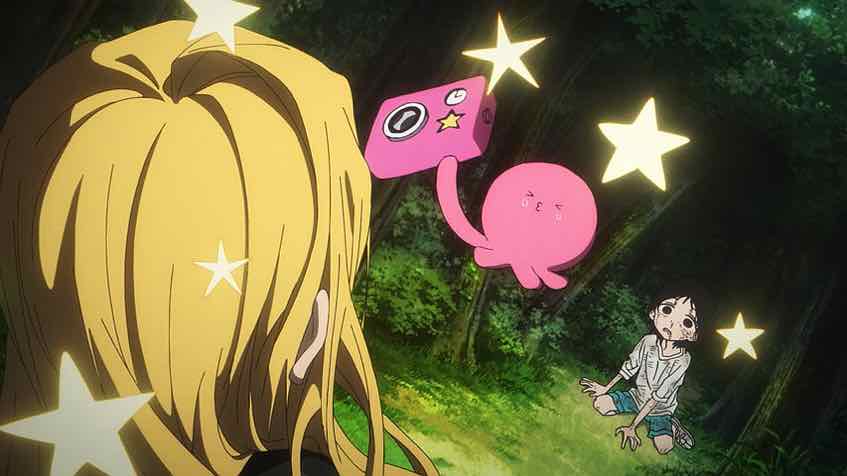
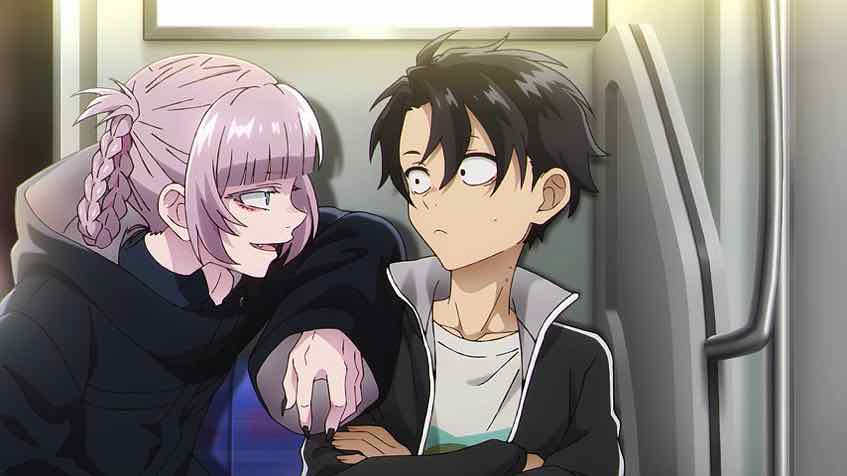
leongsh
June 25, 2019 at 9:51 pmNo mention of the end where Hyakkimaru went on to fulfill the wishes of Mio and the kids? Planting the rice seeds and resulting in the fields of gold (ripened rice) that we see billowing in the background when a grown up Dororo catches up with him?
Many small scenes to like in this last episode. One of those being Nui finally managing to give Hyakkimari, her first son, the mother’s hug and warm embrace that she barely got to do when he was born.
Bel
June 25, 2019 at 10:29 pmA great review for a great episode. I particularly like the scene where Hyakkimaru sees his mother and Jukai for the first time, and he calls out “Mama”. I assume he’s referring to both Nui and Jukai.
P.S. Just want to say that the success (and the attached hiccups) of Dororo is not solely on MAPPA. Tezuka Productions has also produced a handful of episodes, including the stellar Jukai flashback episode (according to Sakuga Booru). It’s kind of like Sarazanmai, where Lapin Track does most (if not all) of the work, and MAPPA gets all the credit because they are big and well-known.
Guardian Enzo
June 25, 2019 at 10:42 pmThat’s a fair point to be sure – this is indeed a co-production.
Kim
June 25, 2019 at 10:34 pmI thought the series was leading to Hyakki not getting all of his body back but continuing his journey with Dororo by his side. Instead it was the complete opposite of Hyakki getting his body back and separating with Dororo until he can learn more about being human on his own.
I don’t think the ending was perfect. I would have liked a bit of a longer epilogue with Dororo and Hyakkimaru and I wished the scenes between the two brothers after they came to an understanding could have been longer but overall I was satisfied.
I was sad that Tahomaru had to die but I also think he sealed his fate after making a deal with the demons. I am happy he made the right decision in the end giving the eyes back to Hyakki. Even if it took Hyakkimaru’s mercy to get through to him. I loved how he called him brother in the end. I think while it’s true Tahomaru won’t bring peace to his people I think he dies in peace (loved in his mother’s arms) knowing his brother will.
This is a contrast to Daigo who lives on with regret knowing the mistakes he made and all that he lost. He ultimately has the worst fate which deserves
Nui failed as a mother to both Tahomaru and Hyakkimaru but in the end she able to hug and show them both love before she died.
Jukai dies knowing he didn’t fail Hyakkimaru that Hyakkimaru will live on as a human. He really did save someone in the end.
Dororo showed her true strength throughout the series. And in the end is able to fulfill her families dreams. She gets the happiest ending which she deserves.
And while I am sad that Hyakki and Dororo had to part I do think it is fitting that Hyakki needs to learn to be human without her. The story tried to make us think Hyakki was danger of becoming a demon but to me the only times he truly lost it was when he almost lost Dororo. She helped him stay on the path of humanity but he can’t only rely on her. He now has to learn things and grow on his own. And when he finds his own answers we see he returns her. As the title of the last story tells us their paths are always connected.
The ending is bitter sweet but it could very well have been a tragedy so I am content with what I got. I am happy I took this journey with these characters. Sad the journey is over for me but happy after some time apart Hyakki and Dororo will continue their own journey together.
Guardian Enzo
June 25, 2019 at 10:44 pmI too feel sorry for Tahoumaru, even though he made a series of morally indefensible decisions and really did piss me off. He was more or less forced into it by his father.
I would describe the ending as hopeful, rather than happy. And that befits a series that was basically a tragedy with a spine of hope running through it.
Okuni
June 25, 2019 at 11:59 pmIf I was going to be granted one anime to be devoted to, in this drought of spirit and vision, I’m glad it was Dororo. Being dead is not the worst thing that can happen to a person, and Daigo is certainly an example. I don’t understand people busting on Nui, she had no agency in her own life. She didn’t belong to herself. It is very difficult to tell a historical story, set in an era of culture and values which seem barbaric and unenlightened, and have it fully speak to contemporary people. Presenting an updated Dororo was a very ambitious task, and the execution faltered some, but it came around right at the end.
sweejen
June 26, 2019 at 7:03 amI agree with your thoughts on Lady Nui. Women of her class married as children, and she likely gave birth to her boys when she was still a teen. She had no ability to make decisions for herself or for her children. Simply leaving the palace and traveling to the village was a defiant and risky thing for Lady Nui to do.
Guardian Enzo
June 26, 2019 at 7:11 amThe problem I have with Nui is her continued hedging on whether what Daigo did was justified, and her refusal to unconditionally defend Hyakkimaru as the victim he is. I sympathize with her for the same reasons I do with Tahoumaru – both of them were dragged into this Hell by Daigo.
BigFire
June 26, 2019 at 12:20 amThis ending is better than the previous TV adaptation that ends with Hyakkimaru killing Daigo in a final duel. Death is too easy of a way out for Daigo, and having him all alone without his realm and power is the true punishment.
Snowball
June 26, 2019 at 2:17 amI am very impressed with this episode with how much ground it covered in such a short period of time and in a fulfilling way.
There were a lot of instances of heartbreak such as Tahoumaru yearning for his mother’s affection, Hyakkimaru being protected and embraced by his mother for the first time and his first vision of his parents just before their deaths.
The artistry was great, too, especially the sequence where Hyakki released his swords and the bandages unwound from his hands.
The aftermath of Daigo was justified, too.
More importantly, Hyakki got his justice and he’s a fully functioning human.
Overall, I think Dororo was really exceptional. It had a simple premise that was presented brilliantly. The action scenes had great choreography and directions, but the best parts of the show was the exploration in humanity and emotions especially the episodes featuring Jukai and the sweet moments between the two endearing main leads. The casting was on point (no terrible big named voice actors) and it was refreshing without the usual anime tropes. It was frustrating at times with the moral dilemma, but mostly a rewarding journey. I can’t stop thinking highly of this series and it’s one that is hard to top in recent years.
Deluxe
June 26, 2019 at 5:00 amThat last episode was weird. Everybody dies except the one individual who should have been punished for his evil actions who started it all. Dororo and Hyakkimaru’s parting was dealt literally off-screen. Something was definitely lacking here, compared to last two or three episode which were fantastic.
Overall this was a very fine show, and I especially commend the dedication for traditional hand-drawn animation through the whole course, keeping CG to the bare minimum. The violence and cruelty of this era was showcased without any sugar-coating and the two main characters were endearing – the idea to mute Hyakkimaru for most of the show was a very bold choice that turned out well.
All in all this Dororo anime is a better Berserk adaptation than every Berserk adaptation since 1997.
Marty
June 26, 2019 at 8:36 amOk, so not only did Dororo stick the landing, but it outright outdid the very manga it was based on. This series is a perfect example of an adaptation ascending it’s source material.
Considering Tezuka is a known pacifist (if I remember correctly he lived through WWII), this finale pretty much lined up with his vision. The postwar world (post-Demon-infested in this case) isn’t a happy-go-lucky-everyone-from-the-good-side-lives-happily affair, but like you mentioned, it leaves a taste of hope for a better tomorrow to be built off the ashes of the past.
Great series, a solid 9/10
Guardian Enzo
June 26, 2019 at 11:45 amYes, he was an avowed pacifist to be sure. If you ever get to Takarazuka (between Osaka and Kobe) the Tezuka Museum is well worth checking out.
Aavishkar Singh
June 29, 2019 at 5:58 amSimply brilliant, it’s rare to find anime on par with Naruto and Bleach, that too in 24 episodes.
Shahbaz ali
July 1, 2019 at 6:35 pmWell i would like to thanks my brother for downloading the whole series in my phone.
Hyakki went on to learn things on his own meanwhile dororo is fulfilling the ambitions of her parents. In the end it is shown that grownup dororo is running towards hyakki which relieved me.
Im more curious about the priest biwamaru, he was always there when hyakki and dororo were in danger and helped them. I guess he was following them throughout the series. Greatest revelation priest was a samurai himself.
To sum my experience i would rate this anime 9.5/10.
Though its sad to see tohaoumaru,nui and jukai to die.
One great thing this anime taught us is patriotism and love for the nation.
Hats off to you the writer.
jesse
August 13, 2019 at 9:17 pmWhat Tahomaru is missing is his mother’s love and attention which Hyakimaru ‘took’ – nothing related the borrowing his eyes.
Rom
April 25, 2021 at 12:52 amWow you really said what I had in mind… Huhu the anime was good even tho I wasn’t In favor of the ending, but it’s still a great anime. Rip Hyogo n Mutsu